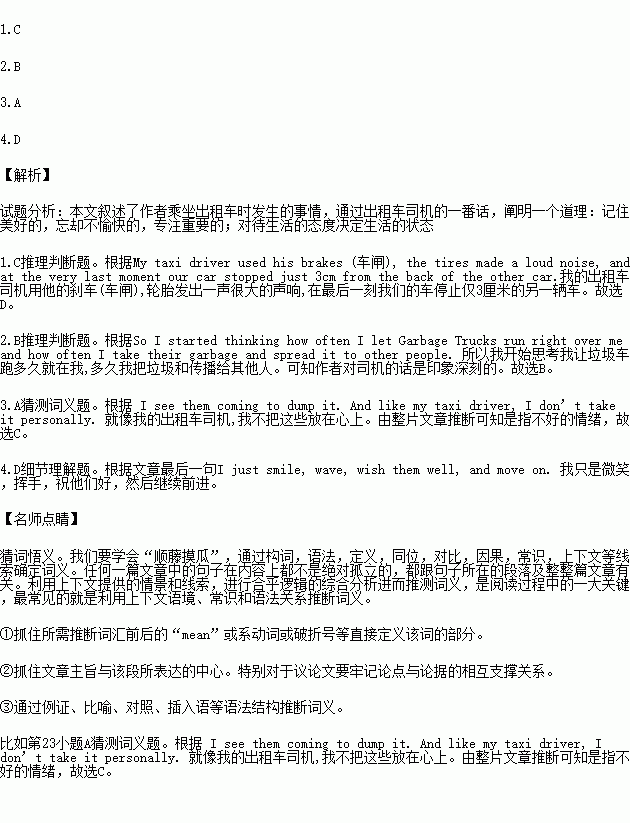题目内容
How often do you let other people like a bad driver, a rude waiter, or an angry boss, change your mood?
Sixteen years ago I learned a lesson. I got in a taxi, and we took off for Grand Central Station. We were driving in the right lane when all of a sudden, a black car jumped out of a parking space right in front of us. My taxi driver used his brakes, the tires made a loud noise, and at the very last moment our car stopped just 3cm from the back of the other car.
I couldn’t believe it. But then I couldn’t believe what happened next. The driver of the other car, the guy who almost caused a big accident, turned his head around and he started shouting at us. I couldn’t believe it!
My taxi driver just smiled and waved at the guy. So, I said, “Why did you just do that? This guy could have killed us!” And this is when my taxi driver told me what I now call, “The Law of the Garbage Truck”. He said, “Many people are like garbage trucks. They run around full of garbage, full of anger and disappointment. As their garbage piles up, they look for a place to dump it. And if you let them, they’ll dump it on you.”
So I started thinking how often I let Garbage Trucks run right over me and how often I take their garbage and spread it to other people.
I began to see Garbage Trucks. I see the load people are carrying. I see them coming to dump it. And like my taxi driver, I don’t take it personally. I just smile, wave, wish them well, and move on.
1.What happened to the author on his way to Grand Central Station?
A. He was caught in a traffic jam.
B. He had a fight with his taxi driver.
C. His taxi almost ran into another car.
D. His taxi suddenly got a flat tire.
2.When the author saw his taxi driver smile and wave at the driver of the black car, he_______.
A. got very angry
B. was deeply impressed
C. felt quite disappointed
D. praised him for his manners
3.The underlined part “the load” in the last paragraph probably refers to _______.
A. the bad mood B. poor habits
C. waste materials D. great pressure
4.How did the author learn to deal with Garbage Trucks?
A. Fight back immediately.
B. Call the police for help.
C. Dump it on someone else.
D. Smile and move on.

